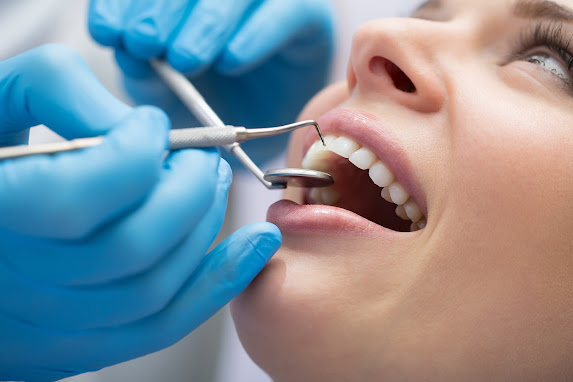What You Should Know When You Visit The Dentist In France?
In France, visiting the dentist is a pretty routine way of going about one's day. The French don't see their teeth as something to be neglected, and feel a high sense of loyalty to their dentists. This article compares the care regime in France with that of America, describing what you should expect to happen during a first visit and after care for several issues which are generally precursors to see your dentist.
What to bring with you?
When you go to the dentist in France, it is important to bring along your dental records and any x-rays that you may have. You should also bring a list of any medications that you are currently taking. It is also a good idea to bring cash or a credit card, as many dentists do not accept insurance.
When to go for your appointment?
Regular dental check-ups are important for keeping your teeth and gums healthy. In France, it is recommended that you visit the dentist at least once a year. If you have any concerns about your oral health, you should schedule an appointment with your dentist as soon as possible.
During your regular dental appointment, your dentist will clean your teeth and check for any signs of tooth decay or other problems. If you need any type of treatment, such as a filling or a root canal, your dentist will also discuss this with you during your appointment.
It is important to remember that dental care in France is not free. However, there are a number of affordable dental clinics located throughout the country. If you do not have dental insurance, you may want to consider purchasing a dental plan before your visit to the dentist.
French Appointment Language (Hints on how to say)
How do you make a dental Appointment in French?, it is important to be familiar with some key phrases in order to make the process go smoothly. Here are a few key phrases and tips to keep in mind:
- Schedule/make an appointment: Prendre rendez-vous (pronounced prawn-druh rehn-doh-voo)
- Dental office/clinic: Cabinet dentaire (pronounced kah-bee-neh dehn-tehr)
- Dentist: Dentiste (pronounced dehn-teest)
It is also helpful to know the days of the week in French, as many dental offices are closed on Mondays.
Lundi (Monday)
Mardi (Tuesday)
Mercredi (Wednesday)
Jeudi (Thursday)
Vendredi (Friday)
Samedi (Saturday)
Dimanche (Sunday)
The Dentist exam
When you visit the dentist in France, it is important to know what to expect during the exam. The dentist will first take a medical history and ask about your dental hygiene habits. They will then visually inspect your teeth and gums for any signs of disease or injury. The dentist may also use a small mirror to check the back of your throat for any abnormalities. After the visual exam, the dentist will usually take X-rays of your mouth to check for cavities or other problems.
Understanding the French Terms
When you visit the dentist in France, it is important to be aware of the different terms used. This can help you to better understand your diagnosis and treatment options. Here are some key French dental terms to know:
Dental caries: Also known as cavities, dental caries are the result of tooth decay.
Dentifrice: This is the French word for toothpaste.
Fluoride: A mineral that helps to prevent tooth decay.
Gingivitis: An inflammation of the gums that can lead to periodontitis.
Plaque: A sticky film of bacteria that forms on teeth and can cause tooth decay.
Prophylaxis: A preventative measure taken to avoid the development of dental caries or other problems.
Your Medical Records
If you are visiting the dentist in France, you should know that your medical records may not be accessible. In some cases, your records may be available through your home country's embassy or consulate. However, it is always best to bring your own copies of your medical records with you when you travel.
Finishing up your visit
After your initial consultation and examination, your dentist in France will likely recommend a course of treatment. This may include regular check-ups, cleanings, and possibly some dental work. Once you have agreed to a treatment plan, your dentist will provide you with an estimate of the costs.
It is important to remember that dental care in France is typically not covered by national health insurance. This means that you will be responsible for the full cost of your care. However, many dentists offer payment plans or discounts for cash payments. Be sure to ask about these options before finalizing your treatment plan.
Once you have completed your treatment, be sure to schedule regular check-ups with your dentist. This will help ensure that your teeth remain healthy and strong.
Conclusion
When you visit the dentist in France, there are a few things you should keep in mind. First of all, it is important to know that the quality of dental care in France is very high. Secondly, you should be aware that prices for dental services can be quite high, so it is important to compare prices before making your appointment. Finally, remember to bring your insurance card with you when you visit the dentist so that you can get coverage for your treatment. By following these tips, you can ensure that your experience at the dentist in France is a positive one.



Comments
Post a Comment